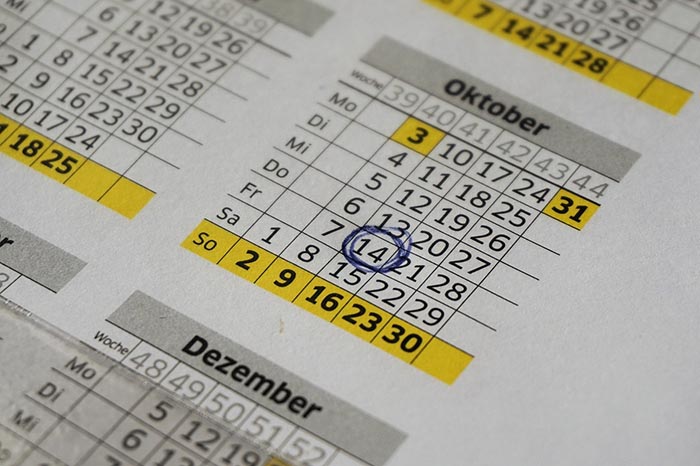Staying organized is key to successful event planning. Whether it’s a corporate meeting, a wedding, or a small gathering, the level of preparation can significantly influence the event’s success. When planners have a clear structure and plan, everything runs more smoothly. This blog explores various techniques to stay organized, ensuring that your next event goes off without a hitch.
The Importance of an Event Planning Checklist
Creating an event planning checklist helps you outline all necessary tasks, deadlines, and resources required for your event. This proactive approach ensures you won’t overlook details. From venue selection and catering to invitations and entertainment, a checklist allows you to prioritize tasks effectively.
The daunting element of event preparation is lessened by segmenting everything into manageable tasks. Constantly referencing your checklist keeps you on track and focused. It serves as a communication tool with your team, making sure everyone is aware of their duties. Your checklist becomes your roadmap, guiding you to a successful event.
Incorporating Printable Calendars into Your Planning Process
Printable calendars can offer an easy way to visualize your planning timeline. They help track deadlines, appointments, and to-do lists at a glance. Incorporating these calendars into your planning process can greatly enhance organization.
Customize your calendars with due dates for each task. Use bright colors for major milestones and softer shades for minor tasks. This visual representation simplifies the planning process and keeps you focused on your goals. Don’t let this December roll around without a solid plan. Using printable calendars gives you a practical tool for efficient time management. Whether you hang it on your wall or keep it in a binder, it’s a constant reminder of what lies ahead.
Creating a Timeline for Your Event
A well-structured timeline is another critical aspect of event planning. Formulating a timeline identifies when certain milestones should be achieved, allowing for a sequenced approach to tasks. Depending on the scale of your event, creating a timeline six months to a year in advance is prudent. This allows adequate time for decision-making and accommodations.
Each phase of the event planning process can benefit from clear time allocations. When all elements function like clockwork, the outcome is seamless. Ensure your timeline includes specific deadlines for tasks and when to secure vendors, confirm guest lists, and other functions.
Communication with your team about the timeline fosters teamwork and accountability, making the task of planning easier. Stay flexible with your timeline; adjustments may be necessary as the date draws closer, allowing you to adapt smoothly.
Utilizing Digital Tools for Organization
Embracing digital tools can transform the organization process in event planning. Various apps and software exist to help streamline everything from budget tracking to RSVP management. These tools reduce the physical clutter of paperwork and provide efficiency in communication. Invest in project management software like Trello or Asana. These platforms allow you to assign tasks, set deadlines, and monitor progress visually.
They integrate communication features, enabling your team to collaborate easily. Cloud-based storage solutions keep all documents accessible and organized. Accessing your files or itineraries from any device prevents last-minute panic. Combining digital tools will significantly help simplify and enhance the event planning experience.
Communicating Effectively with Vendors and Teams
Effective communication stands at the heart of successful event planning. Clear, concise communication prevents misunderstandings and ensures everyone stays on the same page. Establishing strong lines of communication among team members and vendors is important.
Regular check-ins with vendors and frequent status updates can prevent issues from arising. Using a mix of communication channels, emails, phone calls, and messaging apps, can establish valuable relationships with vendors.
Keeping notes during conversations and following up with emails creates a transparent and accountable interaction. Addressing any concerns promptly improves problem-solving and fosters rapport. Creating a communication plan can enhance clarity, outlining who communicates what information and when.

The Value of Contingency Planning
No matter how well you prepare, unforeseen challenges can arise. Having a contingency plan in place assures that you can handle unexpected changes. Create backup plans for critical aspects, such as venues, vendors, and weather predictions. If you’re planning an outdoor event, secure an alternative indoor location in case of rain.
Having alternate suppliers on speed dial ensures a quick, stress-free solution when the unexpected happens. Communicate contingency plans with your team. Knowing what to do under pressure can make all the difference when issues arise.
Staying organized is vital to navigating the intricacies of event planning. Embracing checklists, timelines, digital tools, and effective communication streamlines the planning process and ensures successful outcomes. When you enhance your organization with printable calendars and contingency plans, you embrace flexibility and readiness. With these strategies in place, hosting a successful event becomes an achievable goal.
##




